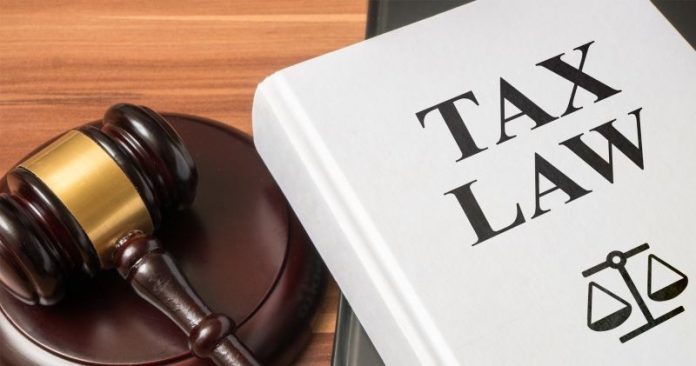AS the Tax Administration process evolves, most tax authorities recognize the need to provide taxpayers with alternative dispute resolution platforms that enable taxpayers to seek redress where they feel that a tax assessment or decision is either unfair or not to their satisfaction.
The need to avoid lengthy and costly litigation that would be neither helpful to the taxpayer nor the tax authority is the major reason for the establishment of an informal dispute resolution mechanism where tax disputes are resolved without litigation in a manner that enhances voluntary compliance and public confidence in the tax administration system as an efficient and professional system. This does not foreclose the taxpayers’ right to seek redress in a court.
At individual tax authorities at Federal and State levels, there are such informal mechanisms. At the state level, there is the Tax Audit Reconciliation Committee, TARC, which performs the same basic function of resolving disputes arising from tax assessment carried out on state taxpayers. Taxpayers within the jurisdiction of the state tax authority are entitled to approach the committee to resolve any disputes they may have with the tax authority’s assessment of their tax liabilities
However, at the national level, there is the Tax Appeals Tribunal, TAT, which was established under section 59 of the Federal Inland Revenue [Establishment] Act 2007. The tribunal is a tax dispute resolution centre established to adjudicate on all disputes arising from the implementation of the following tax laws.
COMPANIES INCOME TAX ACT, CITA.
PETROLEUM PROFIT TAX ACT, PPTA.
PERSONAL INCOME TAX ACT, PITA.
CAPITAL GAINS TAX ACT, CGTA.
STAMP DUTIES ACT, SDA.
VALUE ADDED TAX ACT, VATA.
TAXES AND LEVIES [APPROVED LIST FOR COLLECTION ACT]. Other laws, regulations, proclamations, government notices or rules related to these Acts.
The Tax Appeals Tribunal formerly began sitting in 2010 pursuant to to the Tax Appeal Tribunals [Establishment] order 2009 issued by the then Minister of Finance. The objectives of the Tribunal are stated as follows:
To adjudicate on all the disputes arising from the operation of the various tax laws as spelt out in the first schedule to the FIRS [Establishment] Act 2007.
To be an important component of the tax system which offers the appellant step by step objection, an appeal process and opportunity to explore other alternative dispute resolution mechanisms before gaining access to the regular court system.
To reduce the incidence of tax evasion and ensure fairness and transparency of the tax system.
To minimize the delays and bottlenecks in adjudication of tax matters as presently experienced.
To improve the taxpayers confidence in the tax system.
To provide opportunity for tax expertise in tax dispute resolution and an avenue for effective involvement of parties to the dispute.
To focus on facts rather than legal technicalities and promote early and speedy determination of matters without compromising the principles of fairness and equity.
The Tax Tribunal is constituted into the following eight zones across the country:
The North East zone Tax Appeals Tribunal sits at Bauchi, Bauchi State and has jurisdiction over cases from Adamawa, Borno, Bauchi, Gombe, Yobe and Taraba states.
The North West zone tribunal sits in Kaduna, Kaduna state with jurisdiction over cases arising from Kaduna, Kano, Katsina, Kebbi, Jigawa, Sokoto and Zamfara states respectively.
The North Central zone Appeals Tribunal sits I n Jos, Plateau state and its jurisdiction covers Benue, Nassarawa, Niger, Kogi, Kwara and Plateau states.
South West zonal Tax Appeals Tribunal sits in Ibadan, Oyo state and has jurisdiction over cases from Ekiti, Ogun, Ondo, Osun and Oyo states.
The South East Appeals Tribunal sitting in Enugu is in charge of cases emanating from Abia, Anambra, Ebonyi, Enugu, and Imo states.
The South South zone Tax Appeals Tribunal sits in Benin City, Edo state and covers Akwa Ibom, Bayelsa, Cross River, Delta, Edo and Rivers states.
The Abuja zone Tax Appeals Tribunal sits in Abuja and covers cases from within the Federal Capital Territory, FCT, only.
While the Lagos zone Tribunal sitting in Lagos covers cases from within Lagos state only.
Each tribunal is made up of a Chairman and four other Tax Appeal Commissioners who are persons knowledgeable in tax matters. The Coordinating Secretariat of the Tribunal is headed by a Coordinating Secretary, while at the zones the secretaries are the administrative heads of the secretariats and are responsible for the day to day administration of the tribunals.
Geographically, Delta state falls within the South South zonal Appeals Tribunal sitting in Benin City. Thus any taxpayer, be it individual, group, company or organization operating within the tax jurisdiction of the state is entitled to file an appeal at the tribunal if it feels unsatisfied with tax assessments or decisions taken by the tax authority in the state.
An award of judgement by the tribunal shall be enforceable as if it were a judgement of a Federal High Court, upon registration of such award or judgement with the Registrar of the Federal High Court, by the party seeking to enforce the award or judgement.
Similarly, any person not satisfied with the decision of the tribunal may appeal against such decision on a point of law to the Federal High Court upon giving notice in writing to the tribunal within thirty days from the date on which such decision was given.


